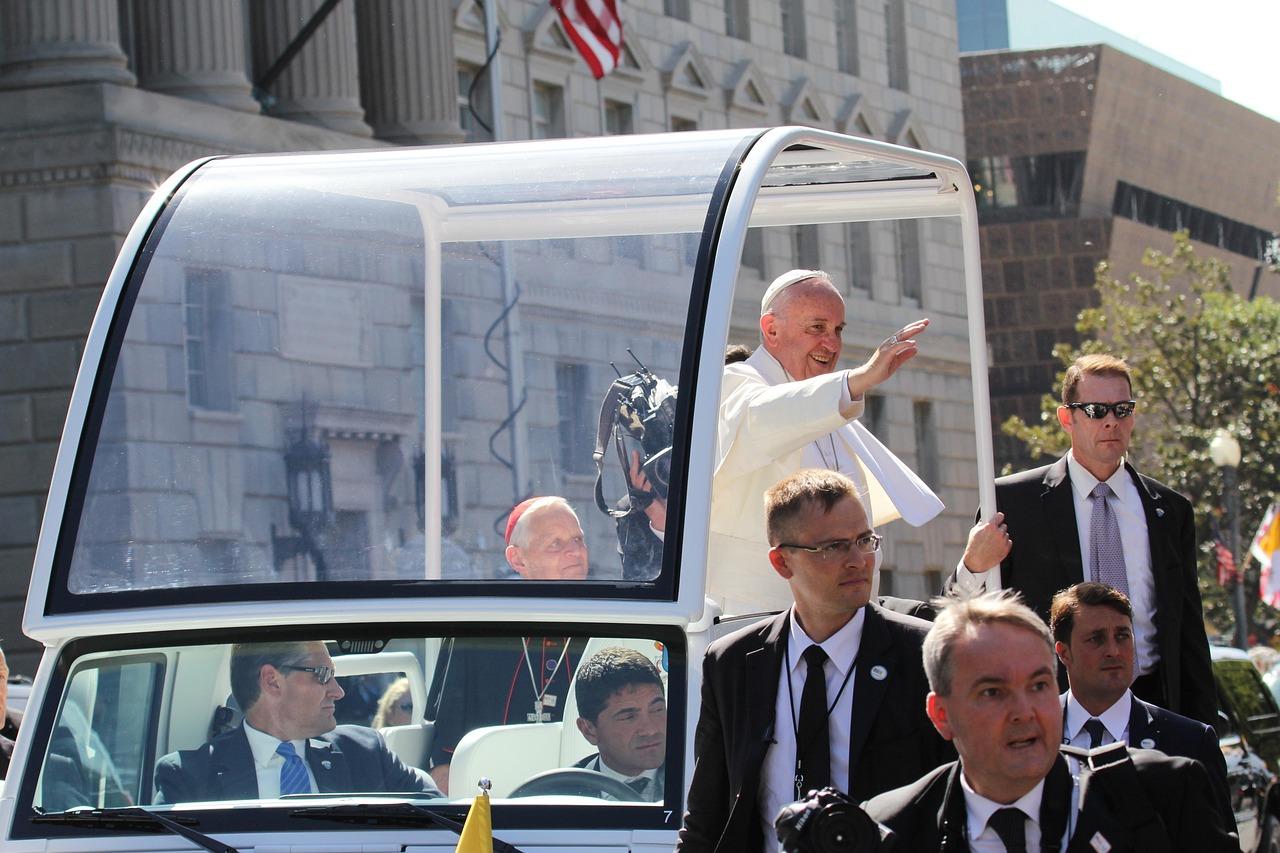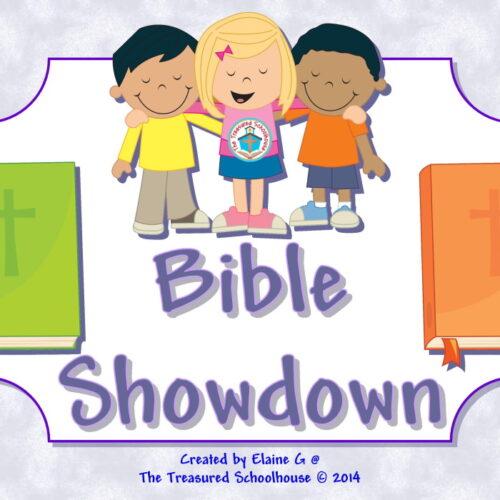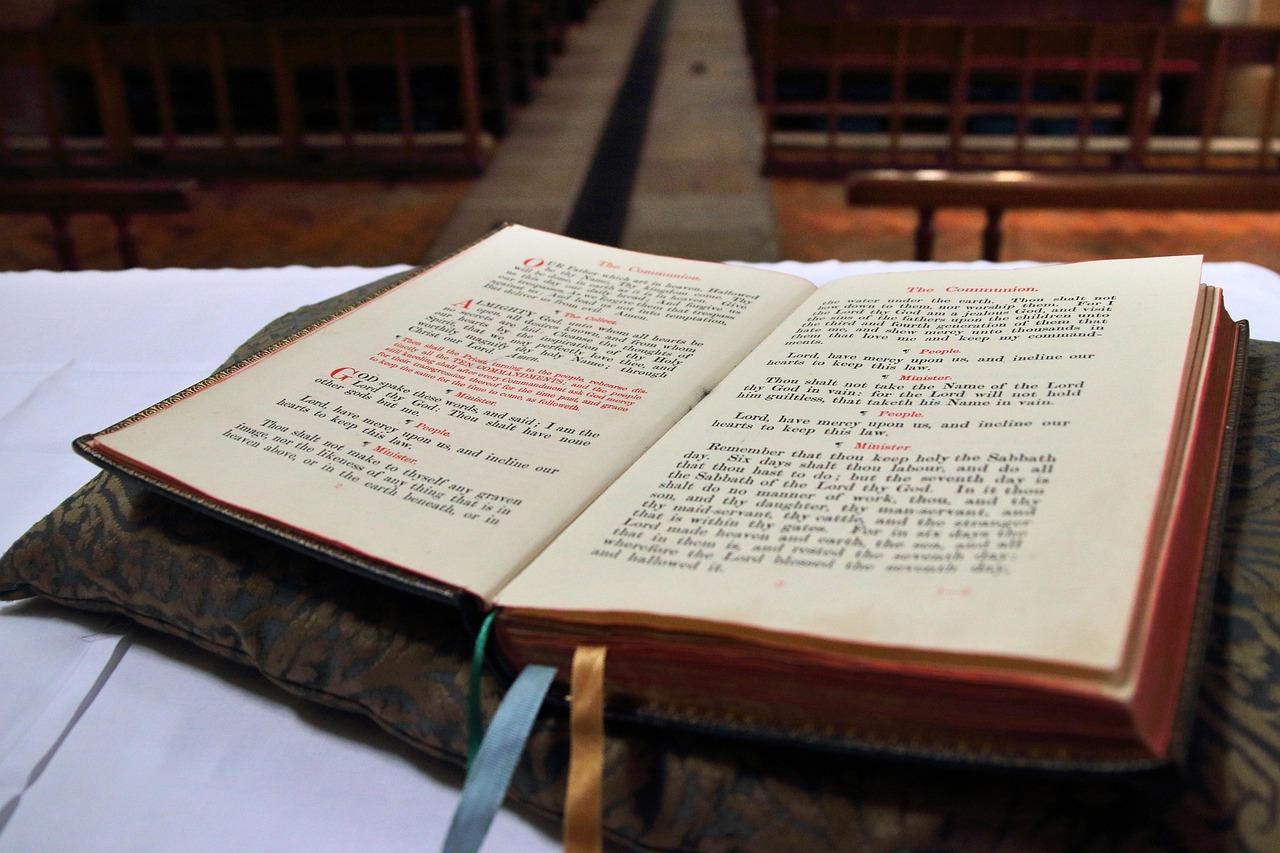Battle of the Bibles: Anglican vs. Catholic Showdown!
Welcome, ladies and gentlemen, to the ultimate ecclesiastical cage match: the “Battle of the Bibles!” In one corner, we have the Anglicans, armed with their Book of Common Prayer, a penchant for hymns, and the notion that a good cuppa can solve most theological dilemmas. And in the other corner, the Catholics, wielding their Rosaries, majestic cathedrals, and an array of saints that could fill a small library!
What do we get when we pit these two titans against each other? A good-natured skirmish of scripture and tradition, where the stakes are even higher than a Sunday collection plate! So grab your theological popcorn and settle in as we explore this celestial showdown, navigating doctrine, dogma, and a dash of divine humor. Who will claim the sacred belt of the Word? Let’s dive into the divine dust-up and find out!
Table of Contents
- The Holy Scripture Smackdown: A Clash of Theological Titans
- Psalms, Prayers, and Pubs: The Anglican Approach to Spirituality
- The Papal Playbook: Catholic Traditions and Their Holy Punchlines
- Scriptural Showdown: How to Choose Your Side Without Losing Your mind
- Battlefield Etiquette: Navigating the Debate with a Wink and a Nod
- Q&A
- in summary
The Holy Scripture Smackdown: A Clash of Theological Titans
In one corner, we have the Anglicans, known for their “Let’s mix and match” approach to scripture. Sporting a Bible that’s got enough bookmarks to make a librarian weep, their vestries are filled with collections of variants and translations. Thay pride themselves on a text that appeals to both the head and the heart, showcasing a balance that’s akin to a tightrope walker who has just had three espressos.
In the other corner,we have the Catholics,hailing from the rich ancient tradition of the Vulgate,wielding a Bible that’s steeped in centuries of dogma with all the fervor of a medieval knight. their weapon of choice? The hefty tome that’s been lovingly used in more than a few Sunday Masses, complete with the faint aroma of incense and a distinctly commanding presence. Straightforward and regal, it’s as if they’re saying, “Why have one translation when you can have Jesus in Latin, Greek, and a sprinkle of Aramaic?”
| anglican Strengths | Catholic Strengths |
|---|---|
| Inclusive interpretation: Allow for various perspectives. | Tradition and authority: Backed by centuries of theological prowess. |
| Multiple translations: Pick your favorite flavor! | Unified doctrine: No confusion, everyone knows the plan. |
| Cultural adaptation: Refreshingly modern. | Rich historical context: The weight of the past in each verse. |
As we glance at the battlefield, comedic skirmishes ensue over scripture verses and interpretations, with each side tossing scripture like soft pillow fights gone awry. The Anglicans might cheekily quote, “Consider the lilies” while the Catholics retort with a rousing, “thou shalt not miss Mass.” In this divine duel, humor leaps from the pages, creating an atmosphere where both theological titans can take a lighthearted jab without losing the sanctity of their beliefs.
Psalms, Prayers, and Pubs: The Anglican Approach to Spirituality
When you step into a quaint Anglican parish on a Sunday morning, don’t be surprised if the atmosphere feels like a balance between a cozy living room and a lively tavern. Where else can you find the entire congregation reciting Psalms in unison while eyeing the biscuits perched on the edge of the communion table? It’s a spiritual buffet, so to speak—complete with the aroma of freshly brewed tea wafting in, inviting even the most reluctant of worshippers to join the fray.
The Anglican tradition has mastered the art of blending the sacred with the utterly relatable. Picture this: during a soulful prayer,the vicar might throw in a cheeky reference to the local rugby match,seamlessly tying divine intervention into the spirit of the game. This unique approach sheds light on a few key tenets:
- Inclusivity: Everyone is welcome, be it saint or sinner, choir enthusiast or pub quiz champion!
- Moderation: As even though you’re encouraged to drink from the chalice, you’re also reminded not to spill it.
- Scripture with a Twist: Expect the clergy to challenge norms, allowing a bit of humor to punctuate solemnity—after all, laughter is ofen the best prayer!
In a nutshell, the Anglican take on spirituality feels remarkably like the perfect pint at your favorite pub: it’s refreshing, grounding, and sometimes surprisingly profound. Just when you thought you’d nailed the beatitudes, someone might raise a glass and remind you to cherish the “blessed are the cheesemakers” section. It’s a reminder that faith and laughter can coexist, and perhaps they should—after all, who would want to miss out on both the divine and a good laugh over a pint?
The Papal Playbook: catholic Traditions and Their Holy Punchlines

In the spirited arena of faith, where doctrines clash with divine punchlines, the Anglican and Catholic traditions face off with a fervor rivaled only by football fans debating team loyalties. Picture the scene: Anglican blessings served with a side of quaint humor, as clergy crack jokes about their passion for tea, while Catholics roll out their ceremonial tapestry, complete with saints and the extravagant gesture of the Pope himself.
One might say Catholics have the upper hand with their rich sacraments and vibrant rituals. Can anyone resist the allure of a two-hour mass with the smell of incense and the occasional choir rendition that could put any Broadway show to shame? Meanwhile, Anglicans rely on their versatile leanings, often leading to peaceful standoffs over cups of Earl Gray during debates about predestination versus free will.The secret? It’s all about finding the balance between being traditional and simultaneously occurring, oh-so-chic!
| feature | Anglican | Catholic |
|---|---|---|
| Service length | A breezy 60 minutes | Bring your snacks, we’re in for 120! |
| Dress Code | Smart-casual with a dash of humor | Bejeweled and bedecked; bling is a sacrament! |
| Holy Water | A sprinkle here and there | More holy water than a kiddie pool |
Regardless of the discipline, one thing is certain: both sides have their rituals rooted in centuries of history, embellished with tantalizing tales. Just imagine the debates over who gets the last donut at the church social; could it lead to a peaceful compromise, or a holy donnybrook? after all, whether you’re on Team Anglican or Team catholic, love might be the ultimate goal—but good humor and a few snacks certainly help get there!
Scriptural Showdown: How to Choose Your Side Without Losing Your Mind

Let’s dive into the theological trenches, shall we? Choosing between the Anglican and Catholic perspectives can feel like selecting a side in a high-stakes rock-paper-scissors competition—lots of drama, but only one can emerge victorious (or at least claim bragging rights at the next church potluck).
First off, let’s talk about the weapons of choice:
- The Anglican Bible: Known for its inclusivity and a touch of independence, it’s like that cool friend who doesn’t want to fit into any one box.You’ll find a mix of tradition and a pinch of progressiveness.
- The Catholic Bible: This one’s got the heavy artillery with its deuterocanonical books—like those extra toppings on a pizza that no one asked for but everyone secretly enjoys. More scriptures equal more fun,right?
Now,here’s where it gets fascinating: having a theological debate here is like attending a family reunion—everyone’s entitled to their opinion,but things can get a bit heated. Perhaps there’s a strategy involved? Check out this handy-dandy table for a rapid reference!
| Aspect | Anglican | Catholic |
|---|---|---|
| Authority | Scripture and Tradition | Scripture, Tradition, and Magisterium |
| View of Communion | Real Presence (but less fussed) | Transubstantiation (serious business) |
| Role of Mary | Highly respected, but less veneration | Venerated as the Queen of Heaven |
So, whether you’re waving the Anglican flag or standing firm with the Catholics, there’s no need to lose your mind in the process. Embrace the quirks of both sides! After all, it’s all just a divine dance of interpretation—nobody trips over their shoes in heels, right?
Battlefield etiquette: Navigating the Debate with a Wink and a Nod

As we wade into the delightful chaos of our theological tug-of-war, it’s crucial to remember that civility is our strongest armor. Enjoying a pleasant debate over the nuances of scripture is like savoring a well-aged wine—best with laughter and abundant wit.Here are some tips to keep the battlefield pleasant and comical:
- Mind Your Manners: Even if the other side has just declared Martin Luther the ultimate rebel without a cause, resist the urge to throw your collection of tepid tea bags at them.
- Keep it Light: Feel free to slip in a cheeky joke about transubstantiation. Just remember, not everyone is ready to laugh about turning crackers into the body of Christ!
- Empathetic Eavesdropping: When an opponent passionately defends their stance, nod along appreciatively—even if they’re asserting the Pope was a wizard. A gentle wink can work wonders in defusing tensions.
To spice things up even further, let’s tackle the real differences in the scriptures head-on! Consider this quick comparison of the celebrated “two camps.”
| Aspect | Anglican | Catholic |
|---|---|---|
| Authority | Scripture and tradition | Scripture, tradition, and the Church |
| Veneration of Saints | A nod, but not a bow | It’s a high-five! |
| Communion | Symbolic understanding | Real presence, no debate |
In this noble squabble, let’s aim for engaging banter rather than rigid stances. After all, it’s a grand festivity of beliefs, not a medieval jousting match—unless, of course, you bring foam swords. In that case, all bets are off!
Q&A
Q: What’s the premise of this epic showdown?
A: Picture a celestial arena where Anglicans and Catholics don their finest robes and wield their translation tools like swords. It’s a philosophical wrestling match over which Bible reigns supreme, all while trying to avoid eye contact over the communion table!
Q: Who are the fighters in this literary duel?
A: On one side, we have the Anglicans, armed with their Book of common Prayer and a hefty dose of “let’s be reasonable.” On the other side,the Catholics come in strong with the hefty collection of apocrypha and an uncanny ability to recite the Rosary while brewing coffee.
Q: What’s the main issue at stake here?
A: It’s a classic case of “who’s got the better holes?” The Anglicans say they’ve got a more streamlined list of scriptures, while Catholics argue that their additional books are just the juicy extras! You know, like getting a side of fries with your theological discussion.
Q: Are there any “secret weapons” involved?
A: Absolutely! The Anglicans may have the “power of common sense,” but the Catholics boast the “mysteriousness of tradition,” which appears to involve a great deal of incense and solemn nodding. The real twist? They both use the “how many angels can dance on the head of a pin” argument for bonus points!
Q: What’s the judging criteria for this showdown?
A: The judges have a tall order: they will evaluate on depth of knowledge, the art of sermon delivery, and the ability to brew a perfect cup of tea (or coffee, depending on who’s hosting). bonus points for creative interpretations of “blessed are the cheesemakers.”
Q: How do participants prepare for this biblical brawl?
A: Anglicans dust off their most polished translations,reviewing the “God Saves” passages as if they were preparing for a high-stakes spelling bee. Catholics, simultaneously occurring, commit their favored doctrines to memory, also hitting the gym for that essential spiritual cardio—though it primarily consists of penance and chanting.
Q: Is there a chance for collaboration after this fierce debate?
A: Absolutely! After a spirited skirmish,they often break for tea (or coffee,depending on which side wins). The real victory lies in laughter, lightheartedness, and a deep understanding that everyone really just wants to be good, with or without the extra books.
Q: So, who wins the Battle of the Bibles?
A: The audience! Because ultimately, it turns out everyone loves a good story—especially when there are cookies involved. The true message is one of unity, acceptance, and figuring out once and for all whether fish are allowed during Lent.
Let the showdown begin!
In Conclusion
The Final word: Blessings or Blunders?
And there you have it, dear readers—our whimsical waltz through the Battle of the Bibles! Whether you’re team Anglican, rallying behind your Book of Common Prayer, or vibing with the Catholic tradition, hammering out your favorite verses with some holy water on the side, one thing is without a doubt: it’s all about interpretation.
So the next time you find yourself at a lively debate over which edition reigns supreme, remember—there’s plenty of room at the table for both. After all, whether it’s Erasmus or the King James, why not embrace the variety? It’s like going to a potluck where someone brings lasagna, while another opts for shepherd’s pie. Noms for the soul!
As we close this chapter, we invite you to take a moment of reflection—perhaps with a nice cup of tea or a well-deserved glass of holy water. And don’t forget to pray for those who still can’t find the book of Hezekiah (spoiler alert: it doesn’t exist). Until next time, may your scriptures be ever illuminated, and your debates delightfully spirited! Amen, and pass the snacks!

Leave a Reply